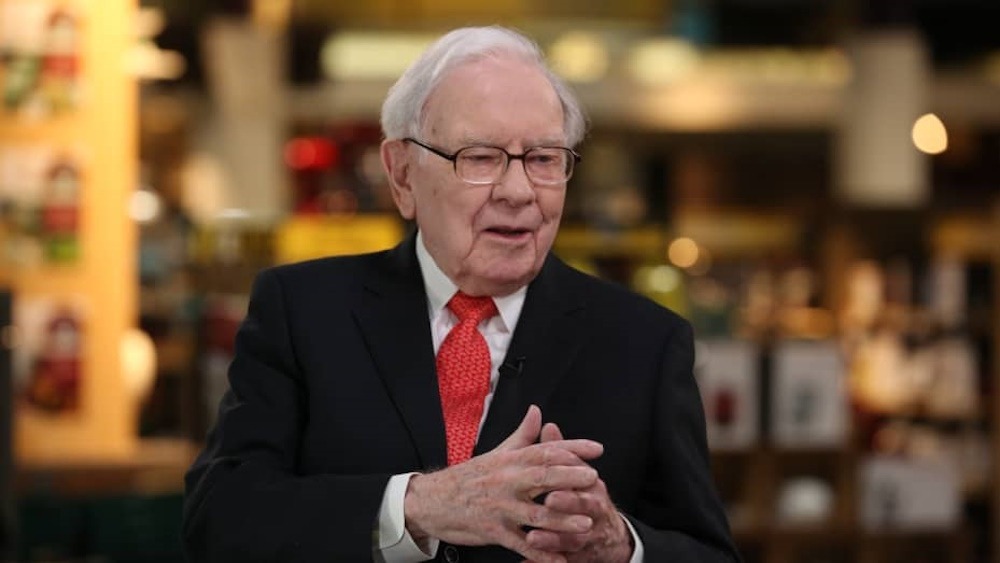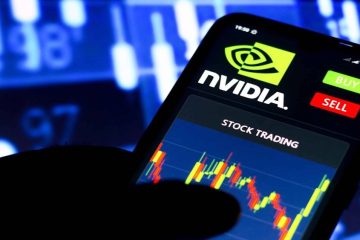What accounts for Warren Buffett’s cash reserves?

In the third quarter, the substantial reserves of cash and Treasury bills held by Berkshire Hathaway, the renowned investment firm, surpassed $300 billion—setting a new record and representing the highest proportion of company assets since data collection began in 1998, as reported by Dow Jones Market Data. The accumulation of substantial cash reserves is a customary strategy for Berkshire, yet the magnitude of the recent increase has elicited concern among certain analysts of the Omaha-based conglomerate.
Preparations are underway to analyze Buffett’s annual letter to shareholders on Saturday, seeking insights into the Berkshire chairman and chief executive’s perspectives on the stock market and potential investment opportunities for the company’s cash reserves. Berkshire’s annual report, featuring the letter, will reveal the amount of cash the company possessed at the conclusion of 2024. “The question at hand is, what will they do with this substantial cash reserve?” remarked Steven Check, chief investment officer of Check Capital Management, a veteran attendee of Berkshire’s annual meetings since 1996. “This is the most extreme instance I can remember.”
Berkshire produces cash through its diverse portfolio of operating enterprises, encompassing sectors such as insurance, railroads, utilities, and confectionery, in addition to its investment activities. Recently, the company’s investment strategies have included a significant divestment of shares. Berkshire has consistently been a net seller of equity securities over the last eight reported quarters, and a regulatory disclosure of its U.S. stock positions in December indicates that this trend has continued into a ninth period.
Buffett’s illustrious standing ensures that his firm’s transactions are scrutinized with a level of attention reserved for only a select few investors. The sale of Berkshire’s holdings can trigger concerns regarding the overall health of the stock market. Financial advisers at Edward Jones have expressed their apprehensions to James Shanahan, a senior equity research analyst at the firm responsible for coverage of Berkshire. “I often hear from our advisers: What rationale do we have for purchasing stocks if Warren Buffett is not engaging in stock acquisitions?” Shanahan remarked.
Analysts monitoring Berkshire perceive the increase in cash as follows: In the realm of substantial, high-caliber enterprises within sectors familiar to Buffett, valuations have escalated to a level that undermines the stock picker’s confidence in achieving meaningful returns for Berkshire and its investors. Buffett and his team are on the lookout for undervalued assets even as stock prices reach historic highs. The S&P 500 achieved a new all-time high on Wednesday, marking a 4% increase in 2025 following two consecutive years of annual gains exceeding 20%. The comprehensive U.S. stock index was recently valued at 22.4 times its anticipated earnings for the forthcoming year, surpassing the decade-long average of 18.6, as reported by FactSet.
During Berkshire’s latest annual meeting in May, Buffett commented on the company’s substantial cash reserves: “We’d love to spend it, but we won’t spend it unless we believe we are undertaking something with minimal risk that can yield significant returns.” “We selectively engage with pitches that align with our preferences,” he remarked later in the session. “It’s not as if I’m engaged in a hunger strike or anything of that nature.” The current situation lacks appeal.
Should Buffett identify a company that appears promising, he would likely possess the capital to acquire it outright. According to its third-quarter report, Berkshire possesses sufficient liquidity to acquire the market capitalization of nearly all but the largest U.S. firms, with enough cash reserves to purchase well-known entities like Deere, United Parcel Service, or CVS Health. Observers of Buffett often assert that the ongoing series of stock sales does not signify a broader market outlook. Instead, they argue, it stems from assessments made on a case-by-case basis, indicating that the future outlook of specific companies does not justify the price at which other investors are prepared to acquire the shares from Berkshire.
A contributing factor to the accumulation of cash is Berkshire’s significant divestiture of Apple shares, which have been valued considerably higher in recent years compared to the p riod when Buffett’s firm was building its stake from 2016 to 2018. Berkshire has systematically reduced its stake in the iPhone manufacturer over four successive quarters beginning in late 2023, decreasing its ownership from almost 6% to 2%, as reported by FactSet. Berkshire refrained from additional sales of Apple shares in the fourth quarter, maintaining its position as the largest stockholding in the consumer-electronics firm, which boasted a market value of $75 billion at the close of 2024.
The decision to reduce a position that had expanded to an excessive proportion of Berkshire’s stock portfolio is interpreted by certain analysts as a strategic measure by the 94-year-old chief executive to facilitate a seamless transition when his chosen successor, Greg Abel, ultimately assumes control. “Some may argue that this is merely a matter of tidying up, that he is organizing affairs in preparation for a transition of leadership,” Shanahan remarked. “He aims to provide Greg Abel with a solid foundation, free from any inherited challenges.”
Additionally, the increase in cash can be attributed to the cessation of stock buybacks, as Berkshire refrained from repurchasing any shares in the third quarter for the first time in several years. The firm asserts that it can repurchase shares whenever Buffett “deems the repurchase price to be beneath Berkshire’s intrinsic value, conservatively assessed,” provided that its cash and Treasury bill holdings do not dip below $30 billion. Berkshire’s shares have experienced a notable surge at the beginning of the year, with both Class A and Class B stocks reaching unprecedented closing highs this week. Last year marked a significant milestone as the company’s market value exceeded $1 trillion for the first time.
The cash reserves are generating returns. Berkshire disclosed $8 billion in interest and other investment income from its insurance operations during the first three quarters of 2024, in addition to $3.8 billion derived from dividends. Berkshire’s series of net stock sales has aligned with an ascent in the broader market. From the conclusion of the third quarter of 2022, the S&P 500 has experienced an approximate increase of 70%.
However, seasoned investors appear relatively unconcerned regarding the potential for missed opportunities. There is a prevailing sentiment of confidence in Buffett’s judgment regarding the allocation of Berkshire’s substantial reserves. They are not advocating for the company to distribute cash via a dividend. “Our investment in Berkshire is driven by the expectation of capital reinvestment,” stated Darren Pollock, portfolio manager at Cheviot Value Management. “We possess it in anticipation that a significant player will emerge and they will successfully capture it.” Clearly, that process is extending beyond a reasonable timeframe.








